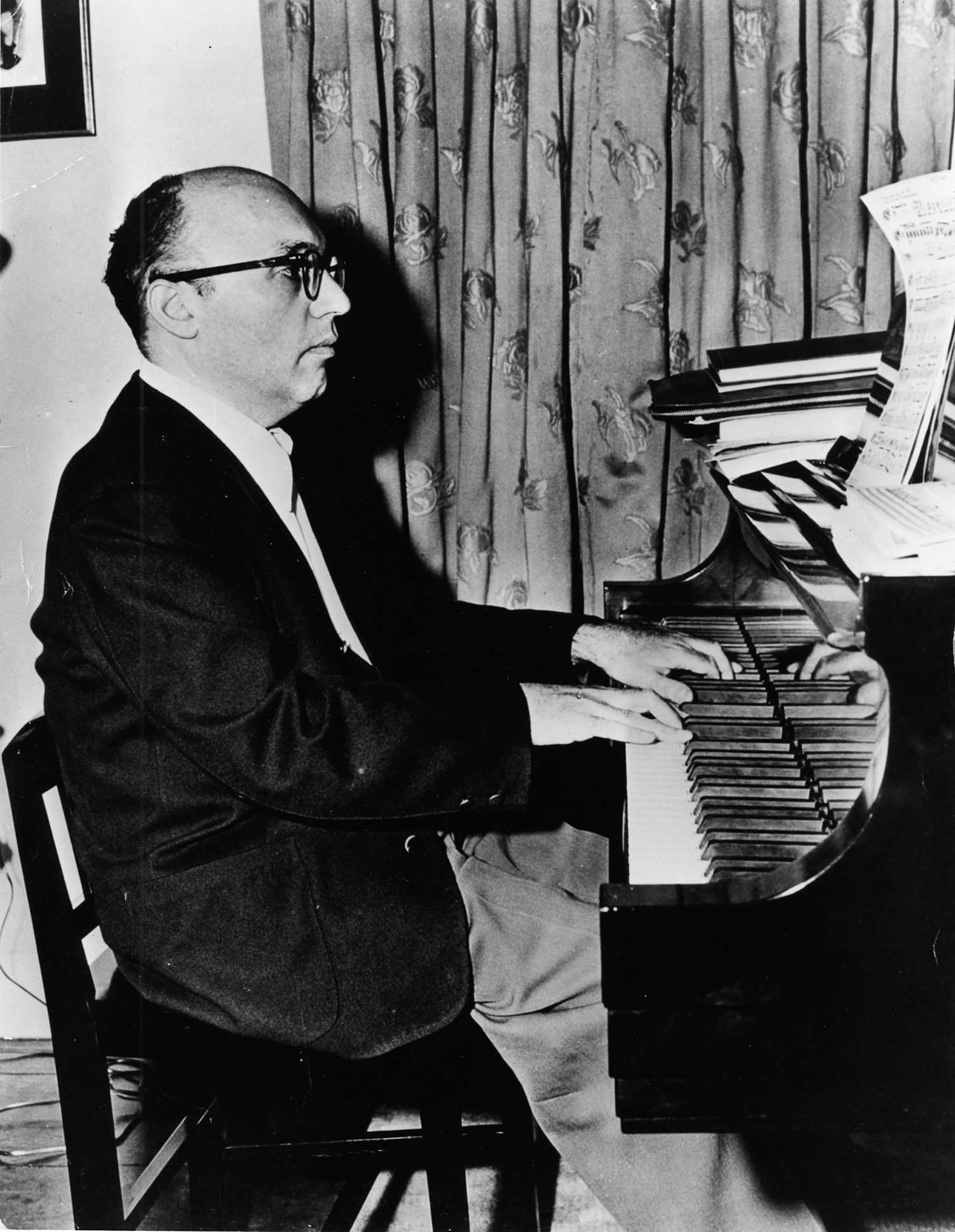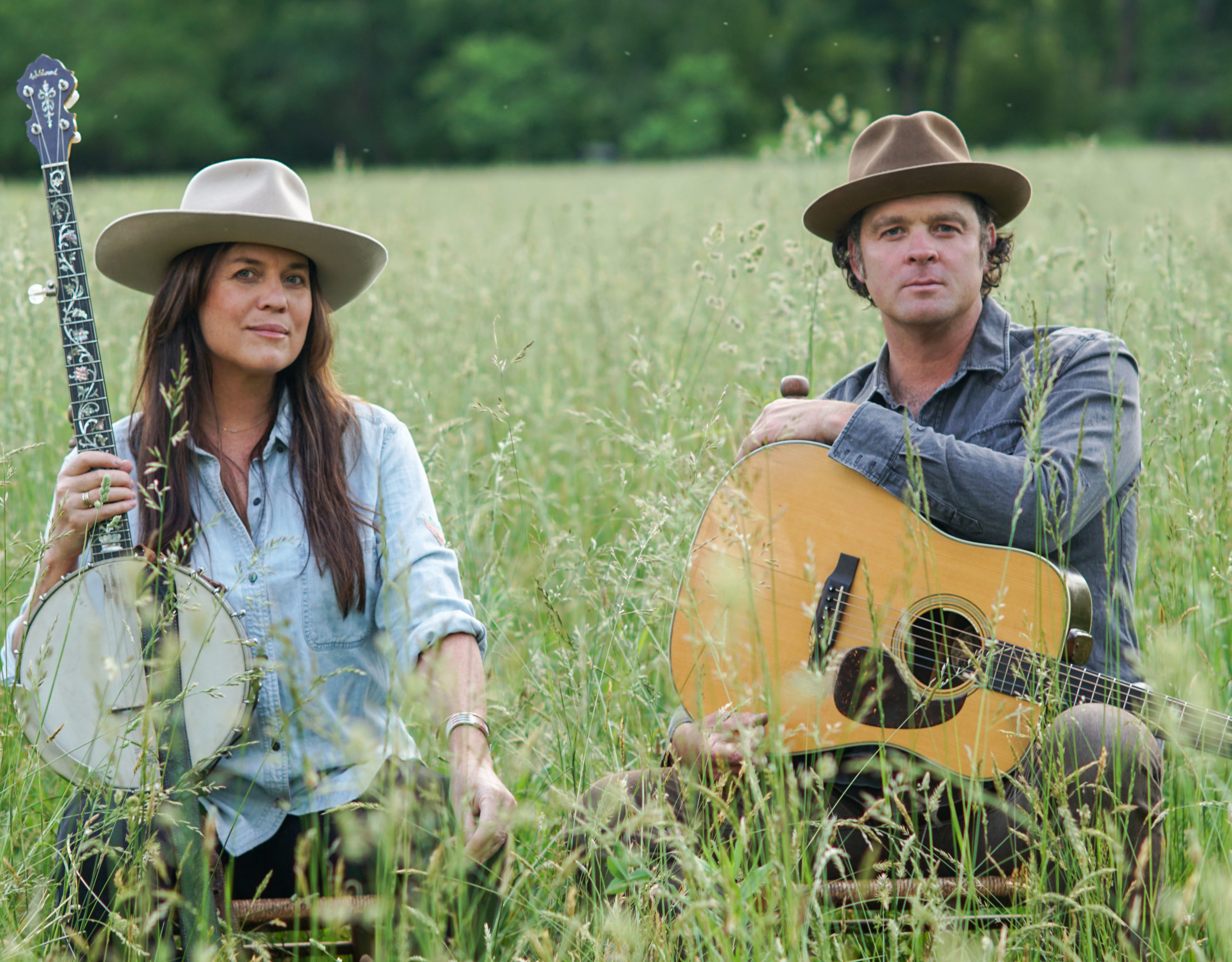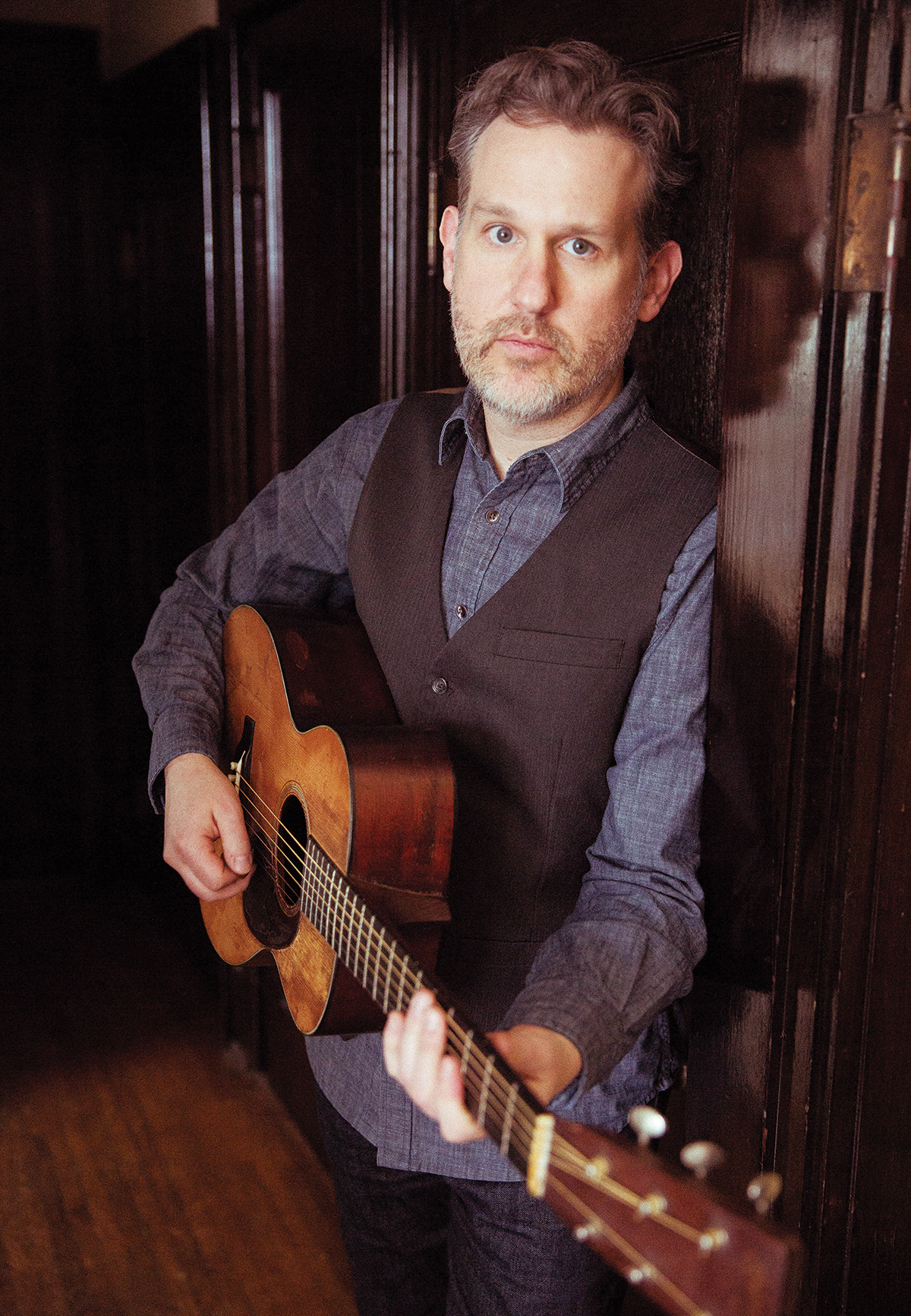
Kurt Weill is shown in the early 1940s in his home in Rockland County, NY. (Photographer unknown; image used courtesy of the Kurt Weill Foundation.) After escaping Nazi Germany during World War II, the composer began to explore social-justice themes in many of his works.
As a German Jewish composer on Adolf Hitler’s hit list, Kurt Weill fled to America by way of Paris, and along the way, charted a musical career path that was often littered with serial killers, prostitutes, family violence, and mental illness. His complex life and music will be examined in an appropriately complex format when Brevard Music Festival presents its “Festival Within a Festival” honoring Kurt Weill’s legacy.
Consider Bobby Darin’s 1959 release “Mack The Knife,” a swingy tune about a mass murderer. Weill wrote the music, and the beat and melody are so finger-snapping that not many listeners digest the words penned by Bertolt Brecht: “Now on the sidewalk, huh, huh, whoo/ Sunny morning, un huh/ Lies a body just oozin’ life, eek/And someone’s sneakin’ ’round the corner/ Could that someone be Mack the Knife?” Other iconic musicians to perform “Mack the Knife” include Louis Armstrong, Ella Fitzgerald, and Frank Sinatra. The song was composed in 1928 for the drama Die Dreigroschenoper, or, as it’s known in English, The Threepenny Opera, a Socialist commentary on capitalism. Pretty heady stuff for a dance tune.
“Kurt Weill is considered by many to be one of the most important composers of the 20th century,” says Jason Posnock, Brevard Music Center’s director of artistic planning and educational programs. “Although he’s not as well known as he should be, his music remains as politically and musically as relevant today as it was when it was first written. Weill’s personal narrative is also compelling … it directly influenced his compositions.”
The Festival Within a Festival, says Posnock, “allows us to put his story and music into context [to] develop a full picture of Kurt Weill the man and Kurt Weill the composer.”
In its efforts to present Weill, the Center is bringing in Joseph Horowitz, one of the most widely published American writers on classical music, to curate the season-long series of free lectures, book readings, operas, and concerts with a Weill theme.
Some of the program titles include “Weill & Schoenberg: From Berlin to Hollywood” (the contributions of Austrian composer Arnold Schoenberg share the bill), “Change the World, It Needs It! A Broadway to Classics Cabaret,” and “Street Scene” (a musical portrait of New York’s Lower East Side in the 1930s) — plus, of course, “Threepenny Opera.”
Posnock particularly recommends the July 12 performance of “Seven Deadly Sins” — a satirical sung ballet written during Weill and Brecht’s travels after leaving Nazi-occupied Berlin — conducted by Brevard Music Center Artistic Director Keith Lockhart and featuring soprano soloist Lisa Vroman with the Brevard Festival Orchestra. “It’s a rare opportunity,” says Posnock. (Vroman, who starred for several years on Broadway as Christine Daaé in The Phantom of the Opera, reprises a role she first performed with Lockhart in Utah.)
In 1949, the composer mused about himself: “I seem to have a very strong reaction [to] the suffering of underprivileged people … the oppressed, the persecuted. … When [my] music involves human suffering, it is, for better or worse, pure Weill.”
Elizabeth Blaufox, director of programs and promotion at the Kurt Weill Foundation, feels that “there is nothing inherently political about Weill’s music, though many of his operas and music-theater works address subjects — such as the immigrant experience [Street Scene]; interracial conflict [Lost in the Stars]; greed, corruption, exploitation of the socially marginalized [Threepenny Opera, Seven Deadly Sins] — that continue to resonate with today’s headlines.” Instead, she explains, “Weill composed these works in response to events happening in the world at that time, [and they] are timeless issues which society continues to wrestle with today. Hopefully audiences can make connections to their current times.”
Brevard Music Center presents “Kurt Weill: Festival Within A Festival” throughout July as part of its larger Summer Institute and Festival. For a full list of programs and concerts, including show times, venues, and ticket prices, see brevardmusic.org.



